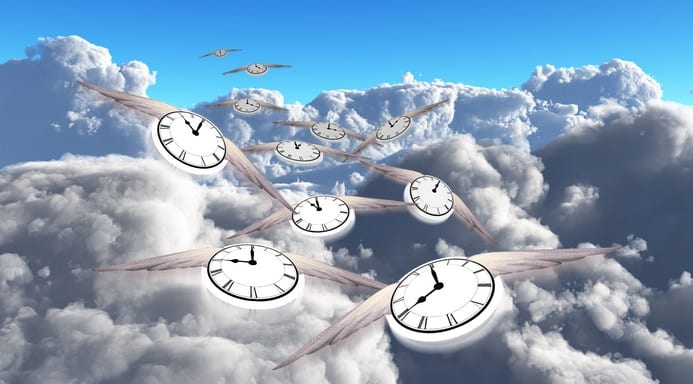
"Time flies" o "seems like yesterday" they are very familiar expressions that we have all experienced at some point.
We get older as the days go by, but, Why do we have the feeling that time flies even faster the older we get?
Several studies have been carried out on the perception of the passage of time (the first in 2005 by M. Wittman and S. Lehnhoff and the last in July 2013 by Friedman, Janssen and M. Naka) and the conclusions to which they have reached are the following:
-Age is an important factor, but mainly when talking about long periods of time. When asked “how quickly has the last 10 years passed for you?”, Adults tended to value the passage of that period as faster than the youth. However, when the question referred to the speed of passing days or months, age did not make big differences.
-The feeling of the "time pressure" plays an important role. Performing tasks with a deadline to complete them often creates the feeling that we always lack time. This factor is independent of age and culture; similar results were obtained with Dutch, German, Austrian, Japanese and New Zealand participants.
Age, time pressure, time intervals… Will we never know why we feel that time is passing faster and faster? Psychologists have proposed five interesting theories to respect:
1. We measure time by memorable events.
Following the hypothesis that William James exposed in his book "Principle of psychology"; as we get older, time seems to move faster because the number of important events is decreasing. When we measure the time for first experiences (the first kiss, the first car, graduation ...) the stop having them (as we get older), can create the feeling that the Years go by empty and almost without realizing it.
2. The time that passes is related to age.
While for a 5-year-old, one year is the 20% of all his life; for an adult of 50, this same year represents only the 2% of all his life. Is "Proportion theory«, Was proposed by Janet in 1877 and suggests that we are constantly comparing time intervals (days, months, years) with the total amount of time that we have already lived. Namely, the longer we have lived, these intervals mean “less” in our life and therefore they seem to pass faster.
3. Our biological clock slows down as we age.
Aging seems to be accompanied by a slowdown of some kind of internal pacemaker. Is "Progressive slowness" of our biological clock It influences in such a way that we can have the feeling that, suddenly, the days go by faster.
4. As we get older, we pay less attention to time.
When we were children, from December 1 we counted the days until Santa Claus or the Three Wise Men brought us our gifts. However, as adults, we are more focused on work, Christmas shopping, travel, bills and other "grown-up" issues. The more attention we pay to tasks like these, the less we will notice the passage of time.
5. Stress, stress and more stress.
Like the findings of the Wittmann and Lehnhoff study, the feeling that there is not enough time to get things done we reinterpret it with a feeling that time passes too fast. Older people, for example, often have this sensation due to impaired physical condition or cognitive decline.
Although the feeling that time "flies" is inevitable, perhaps we can slow down a bit this Christmas. Let's enjoy the time with family and friends and let's pay more attention those moments that usually go unnoticed.